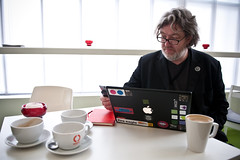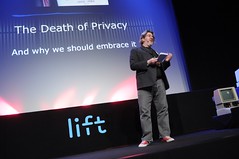[As ever, this can also be read on the BBC News website]
History is littered with manifestos, the public statements of principles and intentions that announce policies, revolutions or ambitious visions in politics and the arts.
Every political party produces one in advance of an election, and significant manifestos from history include the Communist Manifesto of 1848, the the Futurist Manifesto of 1909 and André Breton’s Surrealist Manifesto of 1924, which opens with the glorious claim that ‘so strong is the belief in life, in what is most fragile in life – real life, I mean – that in the end this belief is lost.’
In the internet age we’ve had the Cluetrain Manifesto, various ‘Internet’ manifestos and of course John Perry Barlow’s famous Declaration of the Independence of Cyberspace which tells the governments of the world that ‘You are not welcome among us. You have no sovereignty where we gather’, and is a manifesto in spirit if not title.
The great manifestos demonstrate a clarity of thinking and expression that can galvanise public opinion, reinforce political movements and create new cultural modes of expression, often because they are strikingly expressed and written in language that motivates and inspires.
Who could fail to be moved by the Futurists’ claim that ‘the essential elements of our poetry will be courage, audacity and revolt’ or Cluetrain’s twelfth thesis: ‘There are no secrets. The networked market knows more than companies do about their own products.’
Continue reading “Connecting Clouds”



